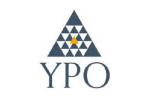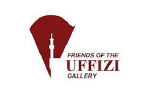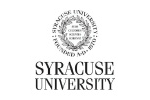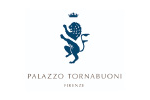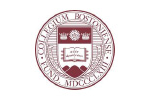







FLORIDA ITALIAN RENAISSANCE ACADEMY 2025
“The Chapels that Defined the Renaissance”
IN-PERSON ART HISTORY ACADEMY
with Dr. Rocky Ruggiero
Dates: February 20 – 21, 2025
Group Size: Maximum 25
The lectures will now be held on the first floor
FLORIDA ITALIAN RENAISSANCE ACADEMY 2025
“The Chapels that Defined the Renaissance”
Dates: February 20 – 21, 2025
Time: 11:00am – 3:15pm
Location:
Arturo’s Restaurant, 6750 N Federal Hwy, Boca Raton, FL 33487
Cost: $685.00
Includes:
All-in person lectures with Dr. Rocky
Morning coffee and biscotti
Group lunch at Arturo’s
Program Description:
The paintings of the Scrovegni Chapel in Padua by Giotto, of the Brancacci Chapel in Florence by Masolino and Masaccio, and on the Sistine Chapel ceiling in Rome by Michelangelo respectively represent three extraordinary milestones in the history of painting. Each of these decorative complexes presents a revolutionary artistic interpretation of Christian iconography. In the Scrovegni Chapel, Giotto’s introduces a type of “visual vernacular” by humanizing the divine protagonists of biblical stories. The Brancacci Chapel instead clearly demonstrates the evolution of Gothic to Renaissance painting styles. On the ceiling of the Sistine Chapel, Michelangelo would instead introduce his epic vision of the Old Testament as expressed through his radical interpretations of traditional subject matter and through his celebration of the male nude form.
Schedule:
– Session 1 – 11am-12:30pm – “The Scrovegni Chapel”
Giotto’s 14th-century fresco cycle in the Scrovegni Chapel in Padua, Italy, is perhaps the seminal motion picture in Western Art. The artist transformed the iconic, sacred subjects of his contemporary painting world into a very human story – or what I like to call the “visual vernacular”. This lecture will examine a surprisingly modern aspect of Giotto’s work, that is the cinematic quality. To put it simply, the paintings in the chapel read like a motion picture or a film, in which humanity is the star. Giotto’s mise en scène is full of expressive character types, landscapes, colour and visual arrangements. The sequential arrangement and juxtaposition of scenes, instead, produce a visual narrative of which most modern film directors would be envious. In a purely visual medium, Giotto is able to evoke sounds and smells, emotions and expectations, humor and terror.
– Lunch break – 12:30-2pm (Group light lunch in Arturo’s)
– Session 2:00-3:15pm – “The Brancacci Chapel”
No decorative space defines the transition between the late Gothic to Renaissance style in painting better than the Brancacci chapel. Between 1423 and 1426, Masolino and Masaccio simultaneously executed frescoes depicting scenes from the life of St. Peter. Although Masolino’s paintings are notable, it was the 22-year-old Masaccio who stole the show. Celebrated as the first true Renaissance painter, Masaccio exploded onto an artistic scene that had already seen Donatello and Brunelleschi revolutionize their respective disciplines of sculpture and architecture. Masaccio’s voluminous forms, sculptural drapery and expressivity became the foundation for future generations of Renaissance artists, including Michelangelo.
– Session 1 – 11am-12:30pm – “The Sistine Chapel”
When Michelangelo signed the contract with Pope Julius II in 1508 to paint the Sistine Chapel Ceiling, little did he know the turmoil that awaited him. Never before had such a large-scale painting been attempted on a ceiling – and by a sculptor no less! After 4 and ½ years of physical strain, personal conflict with the pope, and an endless demand for inspiration, Michelangelo covered nearly 10,000 sq. ft. of ceiling with some of the most beautiful and sublime figures in history. This lecture will examine the artistic importance of the ceiling, as well the human drama behind its creation.
– Lunch break – 12:30-2pm (Group lunch at Arturo’s)
– Session 2:00-3:15pm – “Defining the Renaissance”
Giotto, Masaccio, and Michelangelo redefined painting for both their peers and for future generations. Yet, each artist in-turn built upon the innovations of other artists – both previous and contemporary. Giotto learned from Cimabue. Masaccio from Giotto, Donatello, Brunelleschi, and Ghiberti. Michelangelo had the luxury of two full centuries of artistic revolution that preceded him and could draw from any number of sources. This final lecture will examine how the art of each of the chapels was inspired and connected by the artistic trends that surrounded them and how chapel contributed to defining the Renaissance.
Cancellation and Refund Policy:
Payment in full is required at the time of registration and all sales are final. No refunds are offered on events, nor is payment transferrable to other events, on-line products and/or travel programs. We reserve the right to reschedule or cancel a class or event due to unforeseen circumstances, inclement weather, or otherwise. In the event of an event cancellation, we will contact you directly at the phone number or email address you have provided to offer a full refund or credit to transfer to a future event.
Late Arrivals and No Shows will not be eligible for a refund.
30 in stock






